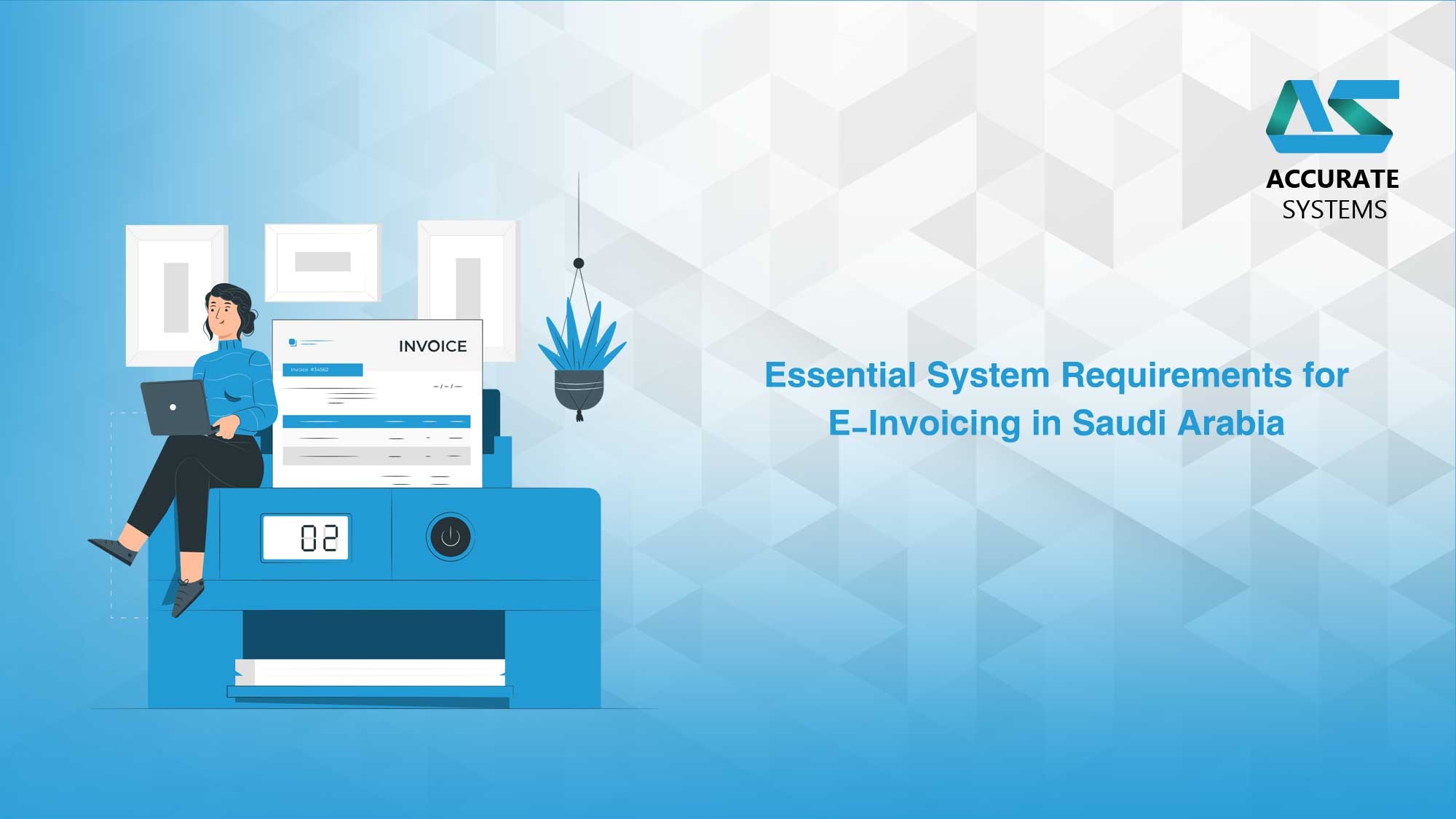Saudi Arabia’s mandatory e-invoicing system has transformed how businesses create, send, and store invoices. To comply with the regulations set forth by the Zakat, Tax, and Customs Authority (ZATCA), businesses need to ensure their systems meet specific technical requirements. This article explores the essential functionalities needed for e-invoicing compliance in Saudi Arabia, highlighting ERPNext as a strong contender that fulfills these requirements and offers additional benefits.
Core Functionalities for E-Invoicing Compliance:
- Invoice Generation: The system should be able to generate electronic invoices (e-invoices) in the mandated ZATCA format. This format ensures standardization and facilitates seamless data exchange with the government’s e-invoicing platform.
- Data Validation: The system should validate e-invoice data against ZATCA specifications before submission. This includes ensuring all mandatory fields are populated with accurate information and that the format adheres to the ZATCA guidelines. Some mandatory fields include:
- Seller and buyer information (VAT registration numbers, names, addresses)
- Invoice details (date, number, total amount, VAT amount)
- Product or service details (descriptions, quantities, unit prices)
- Digital Signature and Encryption: The system should create a secure digital signature for each e-invoice. This signature verifies the authenticity and integrity of the invoice data, preventing tampering or alteration. Additionally, encryption capabilities may be required to ensure secure transmission of e-invoices.
Additional Considerations:
- Integration with ZATCA Platform: The system should integrate seamlessly with the ZATCA e-invoicing platform. This allows for real-time submission of e-invoices for validation and potentially future functionalities like e-payments or e-archiving. APIs (Application Programming Interfaces) provided by ZATCA facilitate this integration.
- QR Code Generation: The system should generate a QR code for each e-invoice. This QR code encodes essential invoice information and allows for easy verification by scanning with a smartphone.
- Data Storage and Archiving: Businesses are required to securely store electronic copies of all issued and received e-invoices for a specific period as mandated by ZATCA regulations. The chosen system should offer robust data storage capabilities that comply with data security and privacy laws.
ERPNext: A Comprehensive E-Invoicing Solution:
ERPNext, a popular open-source ERP system, emerges as a strong contender that meets all the essential functionalities for e-invoicing compliance in Saudi Arabia. Here’s how ERPNext addresses these core needs:
- ZATCA-compliant E-Invoice Generation: ERPNext generates e-invoices that adhere to the mandated ZATCA format. It includes all necessary fields and ensures data validation before submission.
- Digital Signature and Secure Communication: The system provides digital signature capabilities to authenticate invoices and potentially encryption functionalities for secure transmission.
- Seamless Integration with ZATCA Platform: ERPNext integrates with the ZATCA platform through APIs, enabling real-time submission of e-invoices for validation.
Beyond Compliance: Benefits of ERPNext for E-Invoicing:
ERPNext goes beyond just meeting the basic requirements. Here are some additional advantages it offers:
- Streamlined Workflows: ERPNext integrates invoice generation with other business processes like inventory management, sales orders, and accounting. This eliminates duplicate data entry and simplifies e-invoicing workflows.
- Improved Efficiency: Automation capabilities within ERPNext can automate repetitive tasks associated with e-invoice generation and data management, saving time and resources.
- Enhanced Visibility: Real-time data insights provided by ERPNext allow businesses to track invoice statuses, identify potential delays, and improve overall invoicing efficiency.
- Cost-Effective Solution: Being open-source, ERPNext offers a cost-effective alternative to traditional e-invoicing solutions. Businesses can avoid hefty licensing fees and benefit from a large and supportive community.
- Scalability and Customization: ERPNext can adapt and grow alongside your business. Its modular design allows you to activate only the features you need for e-invoicing, with the flexibility to add other functionalities as your requirements evolve.
Conclusion:
ERPNext offers a compelling solution for businesses in Saudi Arabia seeking to comply with ZATCA’s e-invoicing regulations. Its comprehensive functionalities, robust features, and cost-effectiveness make it a strong contender in the e-invoicing landscape. When choosing a system, carefully evaluate your specific needs and consider the additional benefits ERPNext offers to streamline your e-invoicing processes and enhance your overall business operations.


